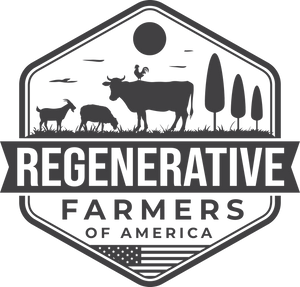- No products in the cart.
Is this crop the real villain in your weight loss plans?
Rice in a Nutshell
Rice is one of the world's most consumed grains. It's a staple crop in many Asian countries—no meal is complete without it on the dining table. Don't be surprised to see a bowl or two when you're having a meal at an Asian household.
Many rice varieties exist in different parts of the world. The three common types are: short-grain, medium grain, and long-grain. Each type has a different preparation method since no two grains are quite alike.
Being a carb means that rice naturally has tons of starch and calories. As a result, it has an unfavorable reputation among weight-conscious folks and health nuts. This has led to some people taking rice out of their meals entirely.
To Cut or Not to Cut It Off?
Now before you give them the side-eye, do understand where these people are coming from. They're simply trying to maintain good health and we shouldn't judge them for that.
However, cutting it off from your daily diet is easier said than done—especially for people who live in places with limited options. Special dietary needs must be considered as well. Here's the million-dollar question: is rice the enemy of weight loss?
The answer is no. This isn't an ugly divorce or a bad breakup between you and rice. If you're having doubts, you may want to stick around and read the next several paragraphs.
Rice is Not the Enemy
Contrary to popular belief, you can eat rice on a diet. Don't feel too guilty if your stomach is craving a bowl of starchy goodness. While you can still enjoy this carb, you may need to set limits for yourself. As cliche as this may sound, it's all about moderation. Don't forget to add regular exercise and proper diets into the mix as well.
Before we get to the specifics, let's debunk three rice myths first, shall we? Misinformation—especially in this day and age—can cause a ton of problems down the line.
One, rice isn't an unhealthy food. Its starchy nature increases sugar levels due to being digested quite quickly. And if food gets digested fast, chances are, you'll go hungry again and pile on more calories. So if you're uncomfortable at the suggestion of eliminating rice from your life, don't do it.
Two, there's isn't a right or wrong rice choice for your weight loss diet. We're all aware of the benefits of brown, red, polished, and unpolished rice, right? These grains have been proven numerous times to be healthier alternatives to white rice. However, it doesn't mean that the latter is a mistake.
Don't believe it? Let research show you otherwise. A handful of studies noticed that white rice contributed to reduced weight gain in countries where it's considered as staple food. In conclusion, the rice you eat totally depends on you.
Three, as we've mentioned earlier, rice still has a place in diets. In fact, there's even a diet that centers around this particular crop.
The rice diet was conceived in 1939. It was a form of treatment for kidney disease and hypertension patients. This low-fat diet primarily consisted of white rice, sugar, fruit, and fruit juice. Surprisingly, it had positive health impacts, such as kidney disease relief and weight loss. Do note that this isn't for everyone and isn't applicable to rice consumption in normal diets.
Enjoying Rice on Diet
Here comes the nitty-gritty part of this post. Are you ready?
Weight loss diets typically place limits on calorie consumption; other folks call this strategy “calorie counting.” This causes people to forget about eating rice as it can get in the way of their weight loss plans. But, as mentioned earlier, you don't have to kick it to the curb.
Here's some good news that may surprise you: rice is a low-fat carb. This quick-digesting and gluten-free crop contains B vitamins, which can impact your energy levels, cell metabolism, and brain function.
Consume rice guilt-free through these simple tips. Trust us—you'll thank yourself later.
Portion control matters.
This tip doesn't need to be mastered overnight. Portion control is a gradual process, so don't stress yourself out if you can't get it in one go.
There are factors that go into portion control. One of them is your dietary needs. Can your body handle rice's absence in your system? Your diet of choice is another important point to consider. Does rice fit your diet's goals and needs?
You can start by slowly reducing your rice servings. Removing a cup (or two, if you're feeling a little adventurous) is a good place to start.
Add veggies into the mix!
While rice may be a filling carb, don't be surprised if you'll hear your stomach grumble after a few hours of eating it. As explained early in this post, rice is a quick-digesting food; this causes you to feel hungry.
Diets don't have to be bland. Who says getting healthy can't be yummy?
Curb the hunger and add variety to your meals by adding vegetables. Ideally, your veggies should either be high in fiber and protein. Serve them roasted or grilled for less grease and more flavor.
Not only are they healthy alternatives, but they also make for great side dishes. You can pair them with meats like turkey and chicken.
Choose cooking methods wisely.
Fried rice is an undeniably comforting treat. However, you may want to lay off on the frying. The same goes for creamy rice dishes as well. Lessen your calorie count by busting out your best pot and boiling your rice.
In Conclusion
You can achieve weight loss even with eating rice on a diet. Just remember the three tips above and use them as a reference. You can even add your own rules to suit your needs. You're in the driver's seat here, so you get to decide how you're going to pull this off.
Got any questions? Don't be shy to ask us anything! Just leave us a message, and we'll be happy to answer anything.














